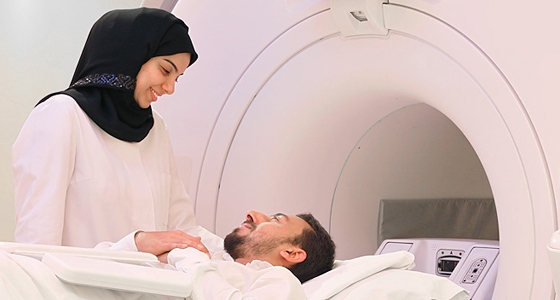A total of QR38bn ($10.5 billion) will be spent on Qatar's healthcare sector over the next five years, HE the Minister of Health and the Supreme Council of Health 's secretary general, Abdullah bin Khalid al-Qahtani, has disclosed.
The official gave the figure during a press briefing at the Qatar National Convention Centre to mark two years of achievements under the National Health Strategy (NHS) 2011-2016.
"We have drawn a five-year plan for the healthcare sector and budgeted up to QR38bn, excluding the healthcare infrastructure, to provide its needs in those years," he said.
Since 2011, a multi-layer five-year budget has been developed for the Supreme Council of Health ( SCH ), Primary Health Care Corporation and the Hamad Medical Corporation, the minister said.
Al-Qahtani said that this year's healthcare budget was QR13.4bn and that a sum of QR340mn had been allocated to projects, manpower and other procurements.
Speaking on management and financing of medical treatment of Qatari nationals abroad, al-Qahtani said that NHS Project 6.2 had set criteria and guidelines "to optimise expenditure, enhance the quality of care and improve co-ordination with services in Qatar".
"Under a new treatment abroad by-law, while administrative decision making remains with the SCH , responsibility for clinical decision-making has been transferred to HMC. A list of international preferred providers has been developed."
He said that plans were on the anvil to establish a Capital Expenditure Committee which will approve new healthcare infrastructure project business cases and concepts requesting government funds or reimbursements by public or private providers.
"Approval of new healthcare infrastructure projects will be based on a 'certificate of need' and a business case plan. The process will be established, subject to appropriate legal powers being in place during this year."
Also, according to the updated edition of the NHS Executive Summary, a Qatar Health Facilities Master Plan 2013-2033 (QHFMP) is being produced for the next generation's healthcare infrastructure requirements, investment priorities and distribution of services.
The plan is expected to guide healthcare capital allocations to ensure that facilities and the services they contain meet the country's needs.
"The QHFMP will be completed in 2013 and will then be regularly reviewed to ensure it continues to take into account Qatar's changing needs, population growth, advances in medical technology and models of care," the document states.
During the ceremony marking the NHS achievements in the last two years, al-Qahtani stated that Qatar residents would from now on would begin to feel the real impact of the strategy, which was launched in 2011 by HH Sheikha Moza bint Nasser to advance the healthcare sector.
"I have been impressed with the high-level of commitment shown by all NHS stakeholders and the progress achieved over the last two years. The benefit of this work has already begun to flow through to our patients and service users, and the real impact will be felt from now through to 2016 and beyond," he noted.
Referring to QNV 2030, the official said: "The NHS forms a critical part of our future and requires the continued commitment across the government, the private sector and civil society. The NHS reflects the aspirations of the Qatari people for world-class healthcare and the resolve of our leadership to make those aspirations become a reality."
Gulf Times
13 June








































































